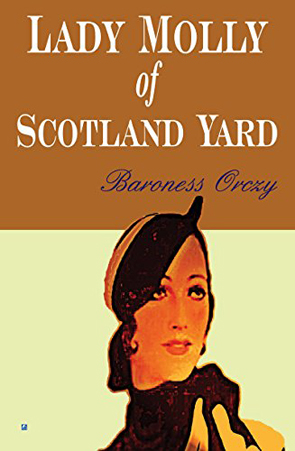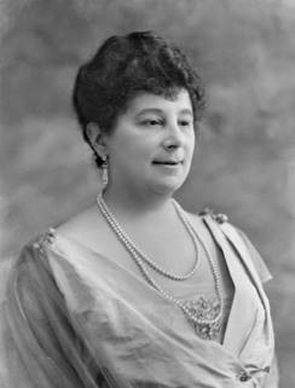
- Category:Crime Fiction
- Date Read:28 October 2021
- Published:1910
- Pages310



- Category:Crime Fiction
- Date Read:28 October 2021
- Published:1910
- Pages310

This is my latest Golden Age classic, another read inspired by The Decagon House Murders. I was surprised to see Orczy used as a character name in that book, as I wasn’t aware of anything Baroness Orczy had written, apart from The Scarlet Pimpernel books. It turns out that she wrote several detective stories, including two short story collections. One is The Old Man in the Corner, featuring an unnamed armchair detective who solves crimes while talking to a female journalist. The other is this collection, featuring the eponymous Lady Molly who mostly uses her feminine intuition to solve crimes.
From what I’ve now read about this book, Lady Molly of Scotland Yard is one of the first novels to feature a female detective. A few years back I reviewed An Unsuitable Job for a Woman by P.D.James. The blurb on the back cover of that book said it featured “the first modern female detective in crime fiction.” At the time I wondered at this, then decided it must be referring to professional detectives, not amateurs like Miss Marple. But now I have this example. Possibly Lady Molly couldn’t be considered a “modern female detective”, but she is certainly female and she seems to work for Scotland Yard (her exact status is never clarified in the book, but she takes direction from the ‘Chief’ at the Yard), so she is a professional. It appears this character isn’t generally well known anymore. Perhaps she is better known amongst dedicated fans of golden age mysteries?
Anyway, I enjoyed this book but I wouldn’t count it as a favourite. As a collection of short stories, it was a quick read. In a way it was more like a Girl’s Own Adventure book: the stories having simple plots and easily resolved mysteries. Generally, the mysteries aren’t difficult to solve. I guessed the solution to most of them. I didn’t feel there was much “detection” involved. Lady Molly seems to solve cases solely by using her ‘feminine intuition’ rather than any great detective skill. Her methods seem a little questionable too, with plenty of illegal searches, entrapments and other dodgy carry-ons.
The format is familiar to anyone who has read the Sherlock Holmes stories. Each story is narrated by one Mary Granard, assistant and confidante to Lady Molly. Except, unlike Watson, Mary seems to suffer excessively from hero worship. Lady Molly is always described in gushing terms – “my dear lady” is the most common description Mary uses – but we also get gems such as “no one can be so winning or so persuasive as my dear lady”, or “the girls’ hostility melting before the sunshine of Lady Molly’s smile” or “my sweet, womanly, ultra-feminine, beautiful lady”. You get the idea. Mary is seriously crushing on Lady Molly!
I did wonder if Orczy forgot the background she initially gave Mary, her narrator, by the last two stories. In the first story, Mary is working for Scotland Yard in the Female Department and is called upon to assist Lady Mary with a case that has left all the male detectives baffled. By the third story, Mary records that she had “severed … official connection with the Yard” and was employed by Lady Mary as her private secretary. But in the second last story, we go back in time, before Lady Mary joined Scotland Yard, and find that Mary was Lady Molly’s maid. So she was Lady Mary’s maid, quit that position to join Scotland Yard with her mistress, then quit Scotland Yard to become Lady Molly’s secretary? It doesn't really seem a likely career progression, so my guess is that Orczy just conveniently forgot the background she’d given Mary when she needed to have Mary already involved with Lady Molly in the flashback story.
The flashback turns out to be an origin story. We find out what led the beautiful Lady Molly, the “acknowledged queen of county and town Society”, to work for Scotland Yard. The final story brings us full circle, with Lady Molly finally able to solve the crime which had personally affected her and then to retire in triumph from Scotland Yard. I found one aspect of the final story amusing – it’s possibly another example of Orczy forgetting a detail she’d already given us and creating an awkward plot point – where a young man falls in love with his half-sister (they have the same mother) and wants to marry her. Oops!
Overall, this was a light and entertaining read, but not really a great collection of mysteries.


No one has commented yet. Be the first!